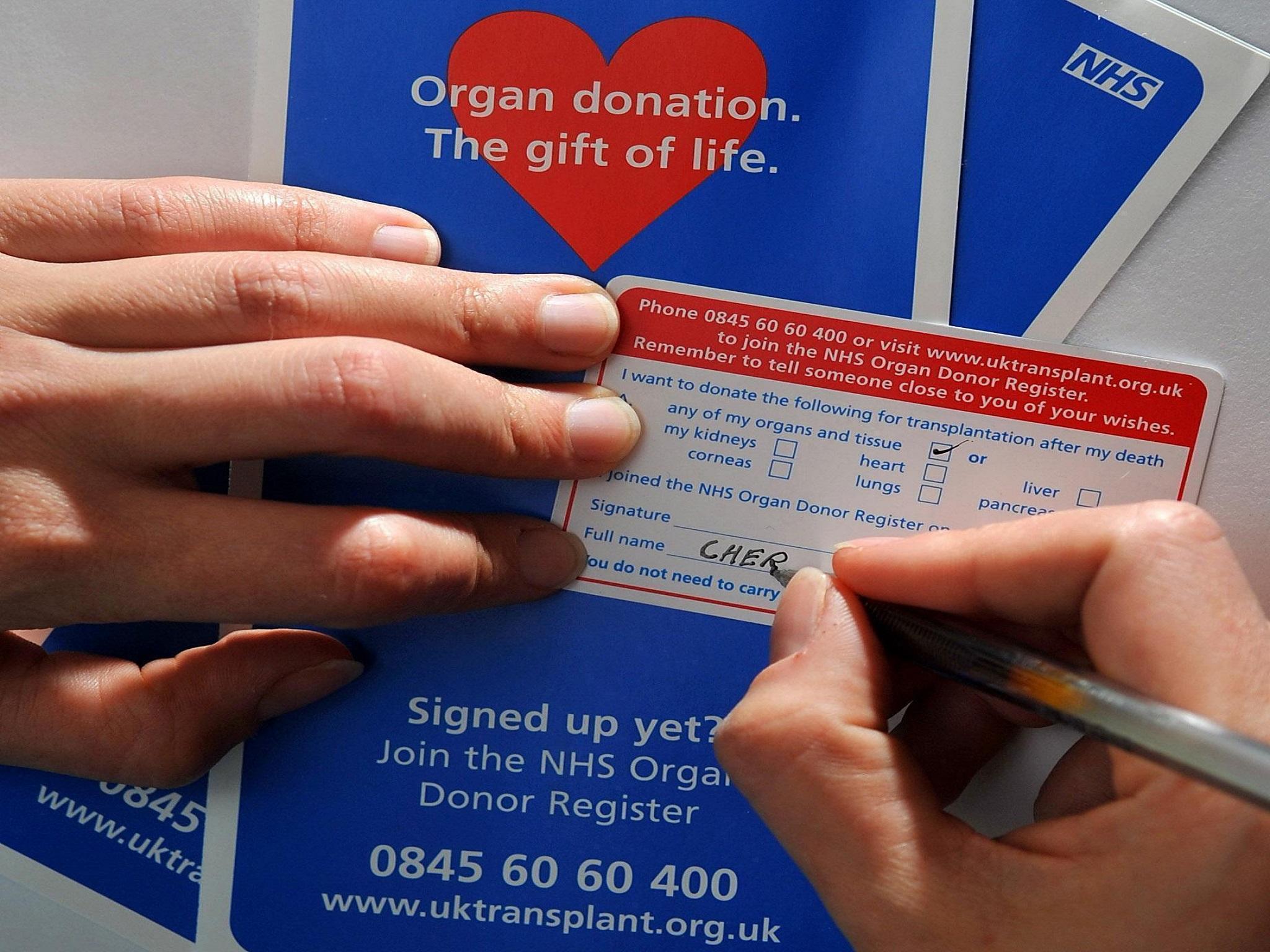Jeremy Hunt says British people have a 'fatal reluctance' to discuss organ donation
Consultation launched after Theresa May announced England would move to an 'opt-out' system which assumes everyone is an organ donor

Jeremy Hunt has blamed a “fatal reluctance” to talk about organ donation in the UK for the fact that 1,100 families opted not to donate their loved ones organs last year.
The Health Secretary is today launching the Government's consultation on the “opt-out” organ donation model that Theresa May announced, at the Conservative Party Conference, would be introduced in England.
The consultation will run for three months and asks how much control families should have over their deceased relative’s decision to donate organs, and what safeguards would be needed in an “opt-out” system.
Waiting lists for a heart transplant in the UK have nearly tripled in a decade, and despite 80 per cent of people saying they would be happy to become a donor their wishes only one in three is a registered donor.
But even registering isn’t enough to guarantee your wishes are followed through.
The deceased’s family are typically the only ones able to provide key medical details in the time-frame for a successful transplant, and if they opt not to cooperate the NHS is unlikely to force the issue.
An opt-out system for organ donation has run in Wales since 2015 but, while it has led to more life-saving transplants, it did also galvanise a spike in people opting out and families can still block donation.
Health Secretary Jeremy Hunt will say: “Every day, three people die for want of a transplant, which is why our historic plans to transform the way organ donation works are so important. We want as many people as possible to have their say as we shape the new opt-out process.
“But as well as changing the law, we also need to change the conversation – it can be a difficult subject to broach, but overcoming this fatal reluctance to talk openly about our wishes is key to saving many more lives in the future.”
The consultation also asks about how it will impact on groups of different ethnicity, age or disability
There is a particular need for black and Asian donors as they make up just six per cent of deceased donors and patients from a black and Asian background wait on average six months longer for a transplant.
Orin Lewis, chief executive of Afro-Caribbean Leukemia Trust & co-chair of the National BAME Transplant Alliance said he expected the debate on an opt-out system to be “heated but ultimately constructive”.
He added: “As a parent of a young man who sadly passed away from Multiple Organ Failure, I gladly welcome the Prime Minister’s decision to instigate a much needed public consultation on the relative positive and negative merits of England having an Opt Out Donation policy.
First full-face transplant patient takes a bow
Show all 3Simon Gillespie, Chief Executive of the British Heart Foundation, said: “The Government’s commitment to an opt-out system is a commitment to ending the agonising pain felt by families who risk losing a loved one while they wait for an organ.”
But medical ethics groups questioned the Government’s decision to start from the position of introducing a opt- out system, without first showing it will work.
Mr Hugh Whittall, Director of the Nuffield Council on Bioethics, said: “We are concerned that the Government consultation goes straight into asking how an opt-out system should be introduced, rather than if it should.
“The Government should not be making this change until there is evidence that it works, and until we are confident that it won’t undermine people’s trust in the system in the long-term.”
Subscribe to Independent Premium to bookmark this article
Want to bookmark your favourite articles and stories to read or reference later? Start your Independent Premium subscription today.

Join our commenting forum
Join thought-provoking conversations, follow other Independent readers and see their replies